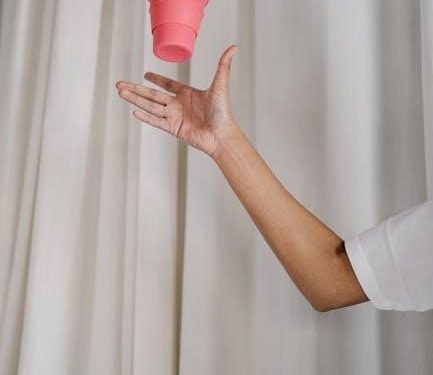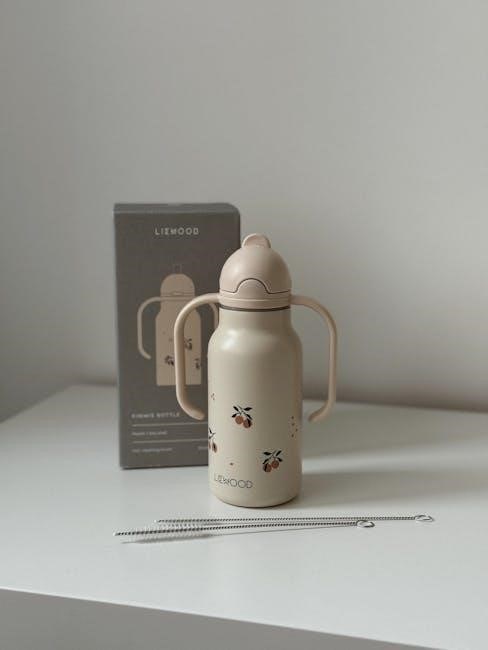
Understanding Renter Responsibilities in Home Repair

Renters are responsible for routine maintenance and minor repairs, such as fixing leaky faucets and addressing electrical issues, to ensure a safe and sound living environment.

Key Differences Between Tenant and Landlord Responsibilities
Understanding the division of responsibilities between tenants and landlords is crucial for maintaining a safe and sound living environment. Generally, tenants are responsible for minor repairs and maintenance, such as fixing leaky faucets or addressing small electrical issues, to prevent larger problems from developing. Landlords, on the other hand, are typically accountable for structural repairs, major appliance maintenance, and ensuring compliance with housing codes. Tenants should report significant issues promptly, while landlords must address these concerns within a reasonable timeframe. Cosmetic changes, like painting walls, often fall under the tenant’s discretion but may require landlord approval. Knowing these distinctions helps prevent disputes and ensures a harmonious living situation.
Essential Tools Every Renter Should Have for Minor Repairs

Equipping yourself with the right tools is key to handling minor repairs effectively. A basic toolkit should include pliers, screwdrivers (both flathead and Phillips), an adjustable wrench, and a utility knife. Duct tape and super glue are also handy for quick fixes. A hammer can help with hanging items or tightening loose parts, while a tape measure ensures accurate adjustments. For electrical issues, a voltage tester is essential for safety. Additionally, a small set of Allen keys and a cordless drill can tackle furniture assembly or minor carpentry tasks. Having these tools on hand allows renters to address small problems promptly, saving time and money while maintaining a safe and sound living space.

Common DIY Repairs for Renters
DIY repairs empower renters to handle minor issues like leaky faucets, electrical fixes, and basic carpentry safely and cost-effectively, ensuring a secure and well-maintained living space.
Fixing Leaky Faucets and Plumbing Issues


Addressing leaky faucets and plumbing issues promptly prevents water damage and waste. Start by turning off the water supply to the faucet. Use an adjustable wrench to disassemble the faucet and inspect for worn-out parts like O-rings or washers. Replace these components with new ones, ensuring a tight seal. For clogged drains, use a plunger or baking soda and vinegar for a natural solution. Avoid harsh chemicals that can damage pipes. If the issue persists or is complex, such as a burst pipe, contact a professional plumber immediately. Regular maintenance, like checking for loose connections and monitoring water pressure, can help prevent future plumbing problems and keep your rental property safe and sound.
Addressing Electrical Problems Safely
When dealing with electrical issues, safety is paramount. Always turn off the power to the circuit at the breaker box before attempting any repairs. Use a voltage tester to ensure the wires are de-energized. For flickering lights, check if the bulb is loose or needs replacement. If an outlet stops working, inspect the circuit breaker for tripped switches or blown fuses. Avoid using damaged cords or plugs, as they can cause fires. If you suspect a more complex issue, such as faulty wiring, contact a licensed electrician. Never attempt to repair electrical systems beyond your knowledge, as this can lead to serious hazards. Keep emergency contact numbers handy for professional assistance to ensure your rental home remains safe and sound.
Basic Carpentry Fixes for Doors and Furniture
Addressing minor carpentry issues can save time and money while maintaining your rental property. For squeaky doors, apply silicone-based lubricant to the hinges. If a door is misaligned, check the hinges and tighten any loose screws. For wobbly furniture, use felt pads or adjustable feet to stabilize it. Small scratches or dents in wood surfaces can be touched up with wood filler or furniture wax. Always test repairs on an inconspicuous area first. Use clamps to hold pieces in place while glue dries. For loose joints, apply wood glue and let it set before using the item. Avoid over-tightening screws to prevent damage. If a repair seems complex, consult a professional to ensure safety and correctness.

Safety First: Precautions for Renters
Always turn off electricity before handling electrical repairs. Use protective gear and ensure proper ventilation when using chemicals. Keep an emergency kit nearby and know your limits—call a professional if unsure.
Understanding Emergency Preparedness
Emergency preparedness is crucial for renters to ensure safety and quick response during unexpected events. Start by creating a well-stocked emergency kit with essentials like a flashlight, first aid kit, and battery-powered radio. Include vital documents such as insurance policies and emergency contact lists. Familiarize yourself with your building’s evacuation plan and know the location of fire extinguishers and exits. Regularly check smoke detector functionality and maintain a charged phone for emergencies. Stay informed about potential hazards in your area, such as natural disasters, and plan accordingly. Remember, preparedness is key to staying safe and sound as a renter, ensuring you’re ready to act swiftly when needed.
Safe Use of Chemicals and Cleaning Products
Using chemicals and cleaning products safely is essential for maintaining a renter-friendly environment. Always read and follow the instructions on product labels carefully. Wear protective gloves and eyewear when handling harsh chemicals to prevent skin and eye irritation. Ensure good ventilation by opening windows or using fans to avoid inhaling fumes. Store cleaning supplies out of reach of children and pets, and dispose of them properly according to local regulations; Avoid mixing chemicals, as this can create dangerous reactions. Opt for eco-friendly alternatives when possible to reduce exposure to toxic substances. By practicing safe habits, renters can protect their health and maintain a safe living space while addressing minor repairs and maintenance tasks.
Legal and Lease Considerations
Understanding tenant rights, lease obligations, and repair responsibilities is crucial. Knowing local laws and lease terms helps renters avoid disputes and ensures compliance with legal requirements.
Knowing Your Tenant Rights
Understanding tenant rights is essential for a secure rental experience. Renters are entitled to a habitable living space, including functional plumbing, electricity, and safety features. Landlords must address significant repairs, while tenants handle minor maintenance. Laws vary by location, so researching local regulations is crucial. Renters should review their lease to identify responsibilities and ensure compliance. Knowing rights protects against unfair practices, such as unauthorized entry or improper eviction. Tenants can seek legal advice if disputes arise. Being informed empowers renters to advocate for their needs and maintain a safe, sound home. Awareness of tenant rights ensures a fair and respectful rental relationship.
What to Do Before Calling Your Landlord
Before contacting your landlord, assess the issue to determine if it’s an emergency or minor repair. For non-urgent problems, consider handling minor fixes yourself, like tightening loose fixtures or unclogging drains. Review your lease to understand your responsibilities and ensure the issue falls under the landlord’s duties. Document the problem with photos or videos to provide clear evidence. Gather any relevant information, such as maintenance manuals or previous repair records. Be prepared to explain the issue concisely and respectfully. Providing detailed information helps your landlord address the problem efficiently. This proactive approach fosters a positive relationship and ensures timely resolutions for a safe and sound living environment.
DIY Projects for Renters
Simple DIY projects, like organizing storage spaces or hanging items safely, can enhance your rental property without causing damage. Always prioritize safety and renter-friendly solutions.
Quick and Easy Fixes to Improve Your Space
Enhancing your rental space can be done with simple, non-invasive changes. Start by organizing cluttered areas using removable storage solutions or adhesive hooks. Update lighting with energy-efficient bulbs or portable lamps to create a cozy atmosphere. For a fresh look, repaint walls with landlord-approved colors or use temporary wallpaper. Add decorative touches like throw pillows, rugs, and potted plants to personalize your space. Ensure all fixes are reversible and adhere to your lease agreement. These quick improvements not only make your home more enjoyable but also respect the property, ensuring a safe and sound living environment for years to come.
Decorating Tips That Don’t Damage the Property
Renters can enhance their space without causing damage by using removable wall decor like command strips or adhesive hooks. Peel-and-stick decals and temporary wallpaper are great for adding personality without harming paint. Use area rugs to protect floors and add style, ensuring they won’t leave residue. Opt for portable furniture and lighting that doesn’t require installation. When hanging items, choose damage-free alternatives like 3M picture-hanging strips. Always check your lease for decoration guidelines and obtain landlord approval if needed. These tips allow you to personalize your home safely, maintaining its integrity while reflecting your unique taste.
Preparing for Emergencies
Renters should maintain an emergency kit with a first aid kit, flashlight, batteries, and a battery-powered radio. Keep essential documents and a list of emergency contacts readily accessible. Store non-perishable snacks, water, and a portable phone charger. Familiarize yourself with fire extinguisher locations and evacuation routes. Ensure you know the landlord’s emergency contact information and local emergency services. Being prepared ensures safety and quick response during unexpected situations.
Creating a Renter-Friendly Emergency Kit
A well-prepared emergency kit ensures safety and convenience during unexpected events. Include essentials like a flashlight, extra batteries, a first aid kit, and a battery-powered radio. Store bottled water (at least 1 gallon per person per day for 3 days) and non-perishable snacks. Add a portable phone charger, whistle, and multipurpose tool. Keep copies of important documents (e.g., lease, insurance) in a waterproof container. Include personal items like medications, blankets, and a change of clothes. Ensure the kit is easily accessible and check it annually to replace expired items. Tailor the kit to your needs, such as including pet supplies or child essentials. This kit provides peace of mind and readiness for emergencies, helping you stay safe and sound as a renter.
Knowing When to Call a Professional
While renters can handle minor repairs, certain issues require professional expertise to ensure safety and prevent further damage. Major electrical problems, gas leaks, or structural damage should never be tackled by renters. If a repair is beyond your skill level or involves complex systems, it’s crucial to call a licensed professional. Additionally, if the repair falls under the landlord’s responsibility, as outlined in your lease, notify them promptly. Ignoring such issues can lead to safety hazards or legal consequences. Always prioritize your safety and the integrity of the property by seeking professional help when needed. This ensures a safe and sound living environment for everyone.

By understanding responsibilities, tackling minor repairs, and knowing when to seek professional help, renters can maintain a safe and sound living space while protecting their rights and investment.
Staying Safe and Sound as a Renter
Maintaining a safe and sound living environment requires proactive measures and awareness. Renters should regularly inspect their space for potential hazards, such as loose wires or leaky pipes, and address them promptly. Keeping an emergency kit with essentials like a first-aid kit, flashlight, and fire extinguisher is crucial. Understanding lease terms and tenant rights ensures clarity in repair responsibilities. Familiarizing oneself with the property’s systems, such as water shut-offs and circuit breakers, can prevent minor issues from escalating. Safety also involves knowing when to call a professional, especially for complex or dangerous repairs. By staying informed and prepared, renters can create a secure and comfortable home environment while protecting their investment and well-being.